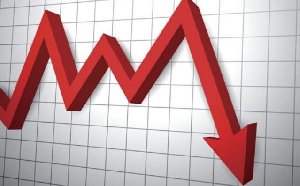The International Monetary Fund (IMF) has unveiled its Regional Economic Outlook for Sub-Saharan Africa, predicting a substantial decrease in Ghana’s inflation rate to 11.5% on average by 2025.
This marks a significant decline from the 22.3% average inflation recorded in 2023.
Additionally, the IMF projects a notable Gross Domestic Product (GDP) growth of 4.4% in 2025, contrasting with the 2.8% growth observed in 2023.
These projections indicate an anticipated rise in both demand and supply within the economy for the upcoming year.
The IMF highlighted that headline inflation across sub-Saharan Africa has been on a downward trajectory since its peak in November 2022, albeit with variations among different countries.
“This cautious stance in monetary policy stems from two key factors. First, median core inflation only recently approached the levels seen before the pandemic. Second, sub-Saharan African countries started their monetary tightening cycles later than other Emerging Markets and Developing Economies (EMDEs), leaving them to play catch-up while many EMDEs have started easing since the second half of 2023”.
It noted that only a few nations, including Botswana, Ghana, and Mozambique, have reduced policy interest rates in the past year, while most have maintained or tightened rates despite declining inflation.
“Even among countries with a marked decline in inflation, only a select few have reduced policy interest rates over the past 12 months (Botswana, Ghana, and Mozambique). The majority have opted to continue tightening or maintain elevated policy rates, even after inflation has passed its peak”, it stated.
Explaining the cautious monetary policy stance, the IMF cited two main factors: core inflation levels approaching pre-pandemic levels only recently and sub-Saharan African countries beginning their monetary tightening cycles later than other Emerging Markets and Developing Economies (EMDEs).
However, the IMF expressed optimism about the potential for more countries in the region to have leeway to lower interest rates soon.
This optimism is supported by the increasing positivity of real-term monetary policy rates across the region.
While Fitch Solutions projects an average inflation rate of 19.0% for Ghana in 2024, the London-based firm also anticipates that lower inflation will ease financial pressures on households and enhance consumer purchasing power.
“So lower inflation will alleviate pressure on household finances and increase the purchasing power that will spur economic growth”.
Senior Country Risk Analyst at Fitch Solutions, Mike Kruiniger attributed the slight uptick in March 2024 inflation to base-side effects and expects inflation to resume its downward trend in the coming months, which would ultimately stimulate economic growth.

